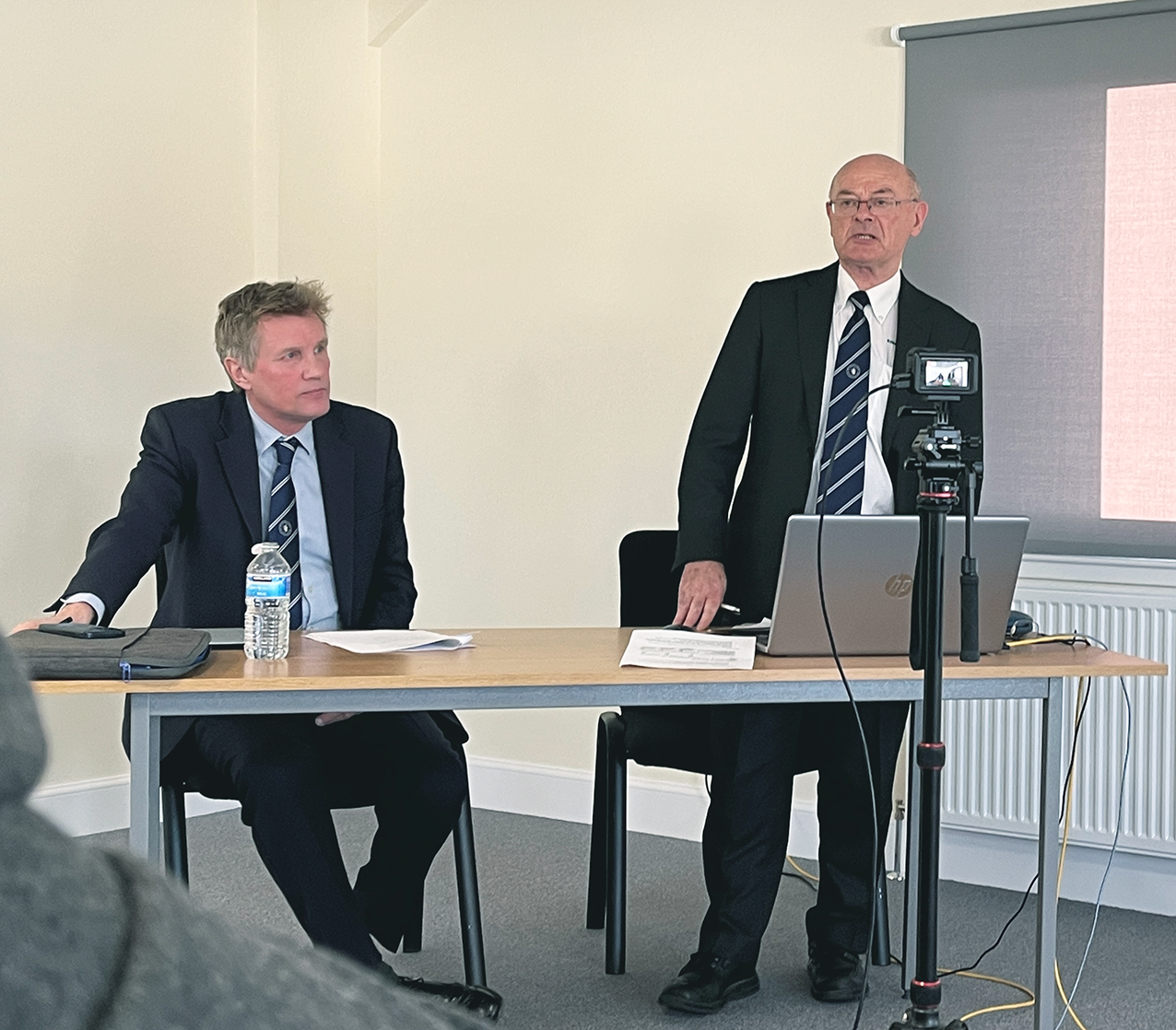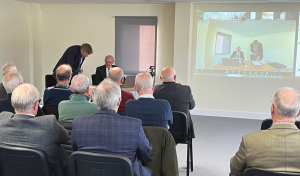“We’re all still grappling with the implications of the changes to inheritance tax and there is no single solution.”
This was the message from a leading rural law expert at yesterday’s (Wed 4 Dec) annual general meeting at Ringlink.
Hamish Lean, head of rural property at Shepherd and Wedderburn, addressed more than 80 members who attended in person and online to understand more about Government plans to cut inheritance tax relief on agricultural assets from April 2026.
The Chancellor announced in October’s Autumn Budget that agricultural property relief (APR) and business property relief (BPR) will be reformed. From 6 April 2026, the full 100% relief from inheritance tax will be restricted to the first £1million of combined agricultural and business property. Above this amount, landowners will access 50% relief from inheritance tax and will pay inheritance tax at a reduced effective rate up to 20%, rather than the standard 40%.
Mr Lean combined practical advice and illustrated examples to explain the changes, ranging from reviewing wills and succession planning to the complex tax situation of lifetime gifts.
From historic estates valued at tens of millions to land and assets just above the proposed taxable level, he answered questions and provided an outline guide to the potential new backdrop.
Although now a partner at Shepherd and Wedderburn in Aberdeen, Mr Lean grew up in Highland Perthshire where his father was a shepherd. As well as heading the firm’s rural property team, he is accredited by the Law Society of Scotland as a Specialist in Agricultural Law and sits on the National Farmer Union of Scotland Legal and Technical Committee.

Today, he joined Ringlink’s managing director Graham Bruce and chairman James Porter as a guest speaker as they updated the company on Ringlink’s results and progress in 2024 as part of the annual general meeting.
Graham Bruce had already touched on the extra burden agricultural employers will face from the rise in the minimum wage of 6.7% and an added 1.2% rise in National Insurance from April.
However he was also able to share the more positive news that a stable situation weatherwise had allowed members to secure most crops in reasonable conditions.
Ringlink Scotland’s 2023/24 throughput reached over £86million in the financial year.

“This is slightly below last year’s record but as that was stoked by commodity price increases in 2022/23 – when nitrogen peaked at £950 per tonne – which have thankfully returned to more realistic prices and will hopefully drop further in the coming year,” he said.
Upskilling the workforce is also being addressed with 9,500 people attending Ringlink Services training during the year.
“By collaborating with other organisations – such as construction and those supporting former military personnel – we can continually expand and enhance our course offering to make sure we offer the courses that you need, with more on offer next year,” said Mr Bruce.
The future generation of the rural workforce was also mentioned with the continuing success of the Land-based Pre-apprenticeship programme.
Forty-five young people are taking part in the latest annual round of Ringlink Scotland’s pre-apprenticeships, which are aimed at addressing the sector’s labour shortages. This is the highest number in the 12 years it has been operating.
Accredited by the Scottish Rural College (SRUC) and administered by Skills Development Scotland (SDS), the successful scheme is seen as a perfect way to attract new blood.
Half of all agricultural workers in Scotland are aged 50 or above and the sector needs some 21,000 extra people to join the ranks between 2025 and 2032, according to SDS data.
“The programme has offered hundreds of young people their first step into the industry,” said Mr Bruce.
“We have reached the end of our latest tranche of funding, so the positive reaction from the Scottish Government to our proposal submitted in March this year has been welcome. We are very hopeful that a further three years of funding will be approved by the end of this year. Administering the programme is a lot of work and this investment will let it grow with higher numbers of young people being introduced into working in rural businesses.”

